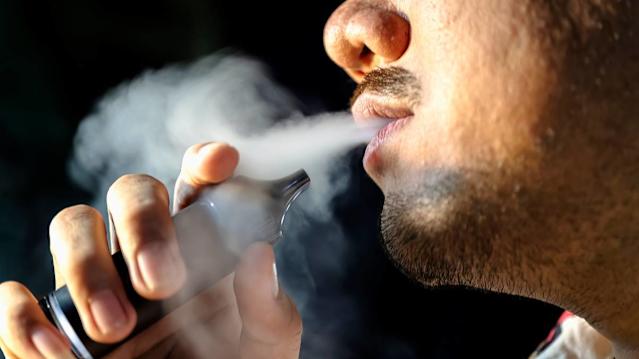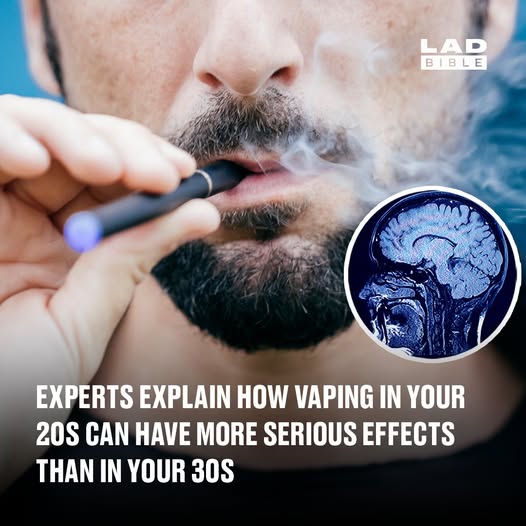Although vaping is often marketed as a “healthier” alternative to smoking, experts warn that this does not mean it is safe. Many young people, particularly those in their 20s, have taken up vaping with the belief that it carries fewer risks than traditional cigarettes. However, frequent and heavy use of e-cigarettes can still cause significant damage to the body. The lungs are among the most visibly impacted organs. In some severe cases, vaping has led to critical conditions requiring emergency medical intervention. One notorious health condition linked to vaping is “popcorn lung”—a permanent and incurable disease caused by inhaling harmful chemicals, resulting in scarring of the lungs’ air sacs.
Hidden Risks to Brain Development
Vaping’s dangers extend beyond just physical health. Dr. Francesco Versace, an expert in brain and behavioral science, highlights a lesser-known risk: the impact of nicotine on brain development. Nicotine, the highly addictive substance present in most vaping liquids, can interfere with the brain’s natural growth process, which continues well into a person’s mid-20s. Dr. Versace explains that the prefrontal cortex—the area responsible for impulse control, decision-making, and emotional regulation—matures significantly during adolescence and early adulthood. Introducing nicotine to the brain during this vulnerable period can disrupt the brain’s neuronal circuits, leading to long-term cognitive and behavioral issues.

Mental Health Implications
Nicotine’s effect on the developing brain can manifest in several concerning ways. Young adults who vape regularly may experience mood swings, attention deficits, and impaired impulse control. Additionally, the heightened vulnerability of their brains can make them more susceptible to developing mental health problems like anxiety, depression, and substance use disorders. Dr. Versace emphasizes that while the immediate gratification from vaping may seem harmless, the alterations it causes to the brain’s reward centers can create lasting challenges for emotional and cognitive health.
Success Stories: The Benefits of Quitting
Despite the seriousness of these risks, quitting vaping can lead to significant improvements in both physical and mental well-being. Those who have successfully stopped report immediate benefits, including better breathing and fewer respiratory issues. One individual who quit vaping noted the disappearance of persistent morning phlegm, a common but often overlooked symptom among regular users. Medical experts assure that many of the body’s negative responses to nicotine can be reversed over time. While it may take several weeks to completely flush nicotine from the system, positive changes in mood, concentration, and physical health can begin within minutes to hours after quitting.
A Long Road to Full Recovery
Although the body starts healing relatively quickly, the mind’s recovery can take much longer. Neurological changes caused by nicotine may persist for months, requiring patience and consistent mental health care to fully overcome. Nevertheless, experts agree that quitting as early as possible greatly increases the likelihood of complete recovery. Young people are encouraged to seek support if they find it difficult to stop vaping, with many resources now available to assist in smoking and vaping cessation efforts.

Conclusion: Think Before You Vape
The allure of vaping, especially during one’s 20s, masks deeper dangers that can affect both the body and mind. The risks associated with nicotine exposure during critical stages of brain development highlight the need for greater awareness and caution. Making the decision to quit—or never start—can have life-changing benefits that last a lifetime.

















